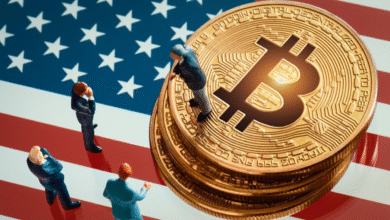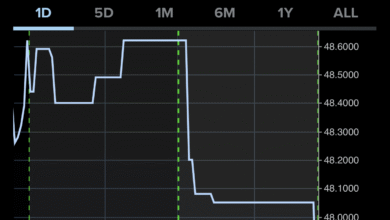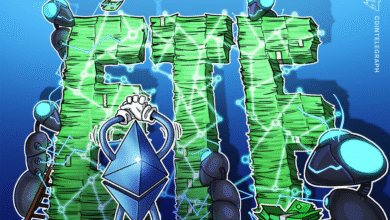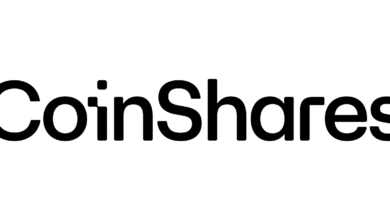Bitcoin Price Surge: Hits $110K as Market Soars High
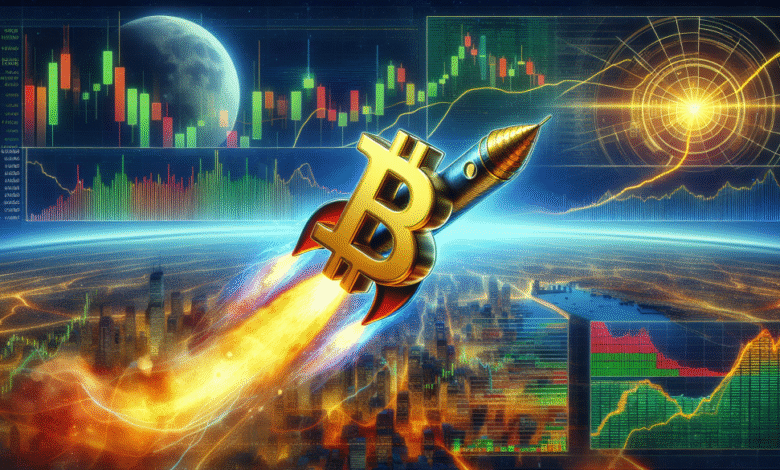
Bitcoin price surge has taken investors by storm, as the leading cryptocurrency breaks through the $110,000 barrier, touching an impressive high of $110,587. This leap has propelled Bitcoin’s market capitalization to a staggering $2.19 trillion, which currently accounts for 63.8% of the entire $3.44 trillion cryptocurrency landscape. As of 7:30 p.m. Eastern Time, Bitcoin is holding steady at $110,077, a clear indicator of bullish momentum in the market. This price hike coincides with significant boosts in the cryptocurrency trading volume, revealing heightened activity among traders and investors alike. Alongside Bitcoin’s rise, other altcoins such as Ethereum have also seen remarkable gains, reflecting broader crypto market trends where bullish sentiment reigns supreme.
The surge in Bitcoin prices signals a robust turnaround in the cryptocurrency arena, a space where digital currencies are gaining both traction and value. As Bitcoin sails past the $110,000 ceiling, its escalating market valuation showcases a revitalized interest among investors. This bullish sentiment is echoed in the growing Bitcoin futures open interest, indicating that traders are positioning themselves for continued upward momentum. Meanwhile, the spike in trading volume across the crypto markets suggests that more participants are engaging in cryptocurrency trading, particularly in altcoins like Ethereum, which also benefits from this upward trajectory. With the landscape shifting rapidly, it’s essential to keep tabs on the various factors fueling these remarkable price increases.
Bitcoin Price Surge: An Unstoppable Trend
The recent surge in bitcoin prices has captivated investors and analysts alike, with the cryptocurrency hitting an all-time high of $110,587. This impressive climb has been attributed to a combination of favorable market conditions and increasing institutional interest. Currently, bitcoin’s market capitalization stands at $2.19 trillion, comprising a substantial 63.8% of the total $3.44 trillion in the cryptocurrency space. As the crypto ecosystem continues to expand, bitcoin is positioning itself as a dominant force, drawing more attention from both retail and institutional investors alike.
The surge in bitcoin’s value also mirrors broader crypto market trends that are witnessing significant growth. With the overall cryptocurrency market capitalization rising by 3.85%, other altcoins like Ethereum and Dogecoin have also experienced noteworthy price increases. As bitcoin solidifies its position, the rhythm of the crypto market appears poised for continued volatility and opportunity for traders. This dynamic open market environment is likely to fuel future price surges, making it an enticing prospect for crypto enthusiasts and day traders.
Understanding Bitcoin Futures Open Interest
Bitcoin futures open interest provides insightful data about market sentiment and investor behavior. Currently, the open interest totals 696,450 BTC, translating to around $76.69 billion. Notably, the CME Exchange leads this space with a significant share of 21.68%, indicating strong institutional backing and confidence in future price movements. Such metrics are crucial for identifying trends and gauging bullish or bearish market sentiment, as higher open interest often correlates with increased trading volume, suggesting sustained interest among traders.
The rising open interest in bitcoin futures can also hint at potential price movements and sentiments within the broader cryptocurrency market. Recent reports show increased activity across platforms like Binance and CME, each experiencing notable gains in their respective open interest. The fact that the majority of the contracts are geared towards call options suggests a bullish market outlook. Traders are likely positioning themselves for further price increases, lending credibility to the optimistic trend surrounding bitcoin and its leading role in the crypto landscape.
Exploring Cryptocurrency Trading Volume Dynamics in the Current Market,
Trading volume is a critical indicator within the cryptocurrency market that reflects the level of participation and interest from investors. Recently, the crypto market experienced a phenomenal surge in trading volume, reaching around $119 billion—a 42.95% increase compared to the previous day. High trading volumes often hint at a robust market dynamic, where traders are actively buying and selling based on favorable market conditions. This volume spike not only highlights heightened investor activity but also sets the stage for potential price volatility in the coming days.
This surge in trading volume can also be attributed to increased trading of various assets, including bitcoin and ethereum, which together have indicated a surge in investor confidence. With Ethereum witnessing a price increase exceeding 6%, its active trading contributes to the overall volume and liquidity in the market. As seasoned traders capitalize on price movements, a thriving trading volume establishes a more vibrant marketplace, where both speculative and strategic trading can flourish.
The Impact of Crypto Market Trends on Investment Strategies
The ever-changing landscape of the crypto market necessitates that investors remain agile and informed. Current trends show an increase in institutional investment in leading cryptocurrencies, particularly bitcoin and ethereum, aligning with a broader acceptance of digital assets in traditional investment portfolios. This shift demonstrates the potential of cryptocurrencies to not only serve as speculative assets but also as viable investment classes amidst global economic uncertainty.
As institutional presence grows, so does the sophistication of trading strategies employed by investors. They are increasingly leveraging options and futures contracts to hedge against potential market downturns and to enhance their positions during bullish trends. Understanding these crypto market trends is essential for investors looking to develop sound strategies that maximize gains while mitigating risks, ensuring that they can adeptly navigate the volatile cryptocurrency landscape.
Bitcoin’s Market Capitalization: A Sign of Stability or Speculation?
Bitcoin’s remarkable market capitalization, now at $2.19 trillion, raises important questions about the sustainability of its price. With 63.8% of the cryptocurrency economy’s total market cap attributed to bitcoin, one must consider whether this stability is backed by genuine demand or merely reflects speculative behavior among investors. Analyzing market dynamics reveals that the continuous rising price is largely influenced by institutional adoption and increased public interest.
Moreover, high market capitalization may signal investor confidence, particularly as bitcoin maintains a substantial share in the cryptocurrency economy. However, ongoing volatility remains a facet of the market that investors need to watch closely. As trends shift and news cycles emerge, the potential for rapid price fluctuations creates opportunities and risks that are intrinsic to bitcoin and the broader cryptocurrency market. Understanding these factors can help investors make informed decisions and adjust their portfolios accordingly.
Options Market Insights in Bitcoin Trading
Recent data from the options market indicates that bitcoin traders favor call options, reflecting bullish sentiment amid rising prices. With over 62% of open interest in call contracts, traders are positioning themselves for potential price increases. This bullish skew signals confidence in the current trend, with many anticipating further surges in bitcoin value as it breaches new thresholds. The growth in options trading reflects not only the interests of retail traders but also the significant influence of institutional players, who often employ options as part of their strategic trading frameworks.
The options market’s current landscape showcases that traders are taking bold positions, with high open interest in far out-of-the-money calls. These strategic placements suggest that traders eagerly anticipate favorable market movements. As evidenced by the largest call options set for future expiration dates, traders’ expectations are clearly aligned with a more aggressive market outlook. Understanding these insights can help investors navigate the price fluctuations within the crypto market and formulate their own trading strategies based on prevailing sentiments.
Ethereum Price Increase: A Complement to Bitcoin’s Growth
Ethereum’s recent price increase of more than 6% has made headlines, particularly as it complements the bullish sentiment surrounding bitcoin. As the second-largest cryptocurrency, Ethereum’s growth is indicative of a wider acceptance of blockchain technology and decentralized finance (DeFi). The interplay between bitcoin and Ethereum showcases the potential for holistic growth within the cryptocurrency market as both assets attract investors and traders looking for opportunities.
The synergy between bitcoin and Ethereum highlights the importance of diversification in cryptocurrency investment. As both assets show price resilience and potential for significant returns, investors are increasingly inclined to allocate funds across multiple cryptocurrencies. The observed price movements of Ethereum not only enhance its viability as an investment but also solidify its position as a strategic asset that complements bitcoin’s dominance in the crypto market.
Anticipating Future Bitcoin Trends Based on Current Data
The data surrounding bitcoin’s market activity provides valuable insight into future trends. With the significant uptick in open interest and trading volume, there is a clear indication that investors are gearing up for potential price fluctuations. As more institutions enter the space, the anticipated growth of bitcoin can be mapped out through the ongoing dynamics within the futures and options markets. Tracking these trends becomes imperative for traders looking to position themselves advantageously.
Moreover, the interplay between market sentiment and empirical data highlights the importance of staying informed. As bitcoin continues to surge in value, understanding how market capitalization, trading volume, and open interest influence price movements can provide critical context for decision-making. By analyzing current data alongside emerging trends, investors can develop informed expectations on where bitcoin’s value may land in the coming months. This foresight can empower traders to capitalize on market oscillations effectively.
Institutional Interest: Driving Forces Behind Bitcoin Surge
In recent months, an increasing wave of institutional interest has significantly influenced the value of bitcoin. As numerous hedge funds and large investors allocate substantial resources towards bitcoin and other cryptocurrencies, the market responds with heightened confidence. This newfound interest is not only driving up prices but also contributing to the overall legitimacy of bitcoin as a viable investment vehicle within diversified portfolios, reshaping traditional investment paradigms.
The implications of this institutional involvement are vast, ranging from increased market stability to encouraging more investors to explore cryptocurrency options. With traditional financial institutions embracing digital assets, further insights into market operations like bitcoin futures and options could yield new investment strategies. Understanding the driving forces behind this institutional interest becomes paramount as it sets the stage for potential shifts in both cryptocurrency valuations and broader financial market dynamics.
Frequently Asked Questions
What factors led to the Bitcoin price surge over $110,000?
The recent Bitcoin price surge to over $110,000 can be attributed to a combination of heightened market interest, increased crypto trading volume, and significant institutional activity. The overall cryptocurrency market capitalization experienced a notable rise, with Bitcoin capturing 63.8% of it, indicating strong bullish sentiment in the market.
How does Bitcoin’s market capitalization affect the overall crypto market trends?
Bitcoin’s market capitalization, now at $2.19 trillion, plays a critical role in shaping crypto market trends. As the leading cryptocurrency, its price movements often influence the performance of other cryptocurrencies. A substantial Bitcoin price surge typically leads to increased trading volume across the market and can result in positive momentum for altcoins like Ethereum.
What is the significance of Bitcoin futures open interest in the recent price surge?
The Bitcoin futures open interest reached $76.69 billion, indicating a robust appetite from institutional traders. This surge in open interest, particularly at platforms like CME and Binance, shows that many investors are either bullish on Bitcoin’s future or looking to hedge against potential downturns, contributing to the recent price surge.
Is the Ethereum price increase related to the Bitcoin price surge?
Yes, the recent Ethereum price increase of over 6% was likely correlated with the Bitcoin price surge. As Bitcoin gains value, it often brings other cryptocurrencies along for the ride, driven by increased market interest and trading volume which typically lifts the entire crypto market.
How does cryptocurrency trading volume impact Bitcoin’s price action?
Cryptocurrency trading volume plays a significant role in Bitcoin’s price action. The surge in trading volume to $119 billion reflects heightened investor activity and confidence, which can exacerbate price movements, leading to rapid increases or decreases in Bitcoin’s price as more participants engage in buying or selling.
What role do Bitcoin options play in the current market surge?
Bitcoin options are instrumental in the current market surge, as indicated by the skew toward call options. With sentiment leaning towards bullish positions, the 62.38% of open interest in calls suggests that many traders are optimistic about Bitcoin surpassing its recent highs, thereby contributing to the upward price movement.
What risks should investors consider during the Bitcoin price surge?
Investors should be aware of potential risks during the Bitcoin price surge, including market volatility and the possibility of corrections. Elevated trading volumes and significant speculative positions in Bitcoin futures and options might lead to abrupt price changes, advising caution when trading in such a dynamic environment.
How does the rise in Bitcoin’s price influence other cryptocurrencies?
The rise in Bitcoin’s price typically leads to a positive ripple effect across the cryptocurrency market, buoying the values of altcoins like Ethereum and Dogecoin. This phenomenon occurs as investor confidence increases, often resulting in heightened trading volumes and market capitalization for these assets as well.
| Key Point | Details |
|---|---|
| Bitcoin Price Surge | Bitcoin reached $110,587, marking significant growth in value. |
| Market Capitalization | Bitcoin’s market cap is $2.19 trillion, making up 63.8% of the overall crypto market. |
| Overall Crypto Growth | The total crypto market capitalization increased by 3.85%, with Bitcoin gaining 4.1% in the last 24 hours. |
| Significant Token Performance | Ethereum and Dogecoin also rose by 6% and 5.6% respectively. |
| Trading Volume | Global trading volume increased to $119 billion, a 42.95% rise from the previous day. |
| Futures Open Interest | Bitcoin futures open interest reached $76.69 billion with CME and Binance leading. |
| Options Market Dynamics | 62.38% of open interest is in call contracts, indicating bullish sentiment. |
Summary
The recent Bitcoin price surge has captivated the market as Bitcoin soars past the $110,000 mark, demonstrating significant momentum and institutional interest. With substantial gains observed across the crypto ecosystem, including other major cryptocurrencies, this surge signals a renewed bullish sentiment among investors and traders. The surge is not just a fleeting moment; the growing trading volumes and push in the futures and options market suggest that traders are positioning themselves for further profit opportunities, hinting at a robust future for Bitcoin.

